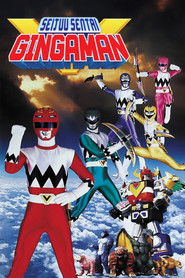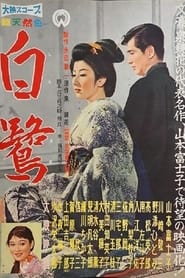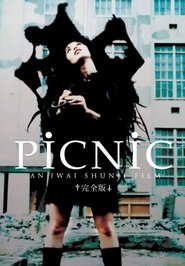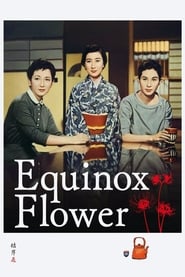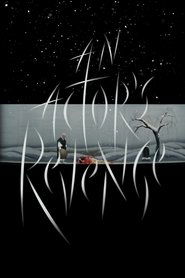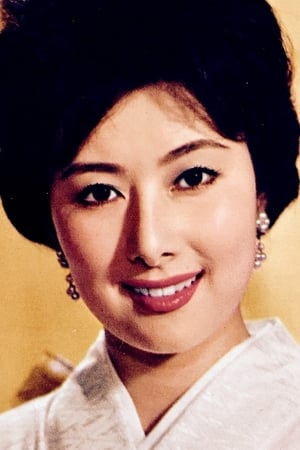
Fujiko Yamamoto
Fujiko Yamamoto (山本富士子, Yamamoto Fujiko) (born 11 December 1931) is a Japanese stage, film and television actress. She was the winner of the first Miss Nippon Grand Prix in 1950, and appeared in over 100 films between 1953 and 1963, including works by directors Yasujirō Ozu, Kon Ichikawa, Shirō Toyoda and Kōzaburō Yoshimura. Yamamoto was born on 11 December 1931 in Nishi ward, Osaka. In 1953, she made her film debut at Daiei Film, and became one of the studio's top actresses. Yamamoto was considered one of Japan's most beautiful women, with, in the words of film historian Catherine Russell, "noble" features that represented the classic ideal of Japanese beauty. As such, she was well-suited for costumed parts in the era's popular period dramas, with her less-frequent modern roles (in films like Ozu's Equinox Flower and Ichikawa's Being Two Isn't Easy) often shot in "movie star" closeups that placed her apart from the films' contemporary storytelling. In 1963, when her contract came up for renewal, she insisted on changes. The head of Daiei, Masaichi Nagata, refused, dismissed her, and prevented her from finding work at other film studios via the Five-Company Agreement. After the Daiei dismissal, Yamamoto acted in the TV series Toshiba Sunday Theatre and on Fuji TV. Even though she has appeared frequently on stage and on television, she has not appeared in a film since then.
Known For
Credits
- 1998 · Seijuu Sentai Gingaman as Kyouhei's Mother
- 1996 · Picnic as Nurse
- 1992 · Ghost Soup as
- 1963 · Yushu Heiya as Aki
- 1963 · An Actor's Revenge as Ohatsu
- 1962 · Being Two Isn't Easy as Chiyo
- 1962 · The Great Wall as Princess Chu
- 1962 · The Venus' Tear as
- 1962 · Nakayoshi ondo: Nippon ichi dayo as
- 1962 · Ika naru hoshi no moto ni as
- 1962 · Yume de aritai as
- 1962 · The Actress and the Three Rascals as
- 1961 · 京化粧 as
- 1961 · Buddha as Usha
- 1961 · Okoto and Sasuke as Okoto
- 1961 · Refresher Course for Wives as
- 1961 · Ten Dark Women as Futaba Kaze
- 1961 · Blind Devotion as Natsuko
- 1961 · Nocturne of a Woman as
- 1961 · Hunting Rifle as Saiko Tagi
- 1960 · Satan's Sword: The Dragon God as Omatsu
- 1960 · Satan's Sword as Omatsu
- 1960 · What Price Love? as Komako Shirokoya
- 1960 · The Twilight Story as
- 1960 · Patterns of Love as
- 1960 · The Song Lantern as
- 1960 · The Demon of Mount Oe as
- 1960 · A Woman's Testament as
- 1960 · Princess Sen in Edo as Princess Sen
- 1959 · Utamaro, Painter of the Woman as
- 1959 · Stop the Old Fox as Tomi / Toyoharu
- 1959 · Pilgrimage at Night as
- 1959 · Beauty the Enemy as Kikue Yoshino
- 1959 · Jirocho Fuji as Oshin
- 1959 · The Path I Remember as Saya Ikeda
- 1959 · Jōen as
- 1959 · The Makioka Sisters as
- 1959 · Peony on the Skin as
- 1958 · The Snowy Heron as
- 1958 · Musume no boken as
- 1958 · Equinox Flower as Yukiko Sasaki
- 1958 · The Swishing Sword as
- 1958 · Thirst as
- 1958 · Inochi wo Kakeru Otoko as
- 1958 · The Loyal 47 Ronin as Yôsen'in
- 1958 · The Precipice as
- 1958 · Mother as Yamanaka
- 1958 · Tokyo Eyes as
- 1957 · Secret of Naruto as
- 1957 · Floating Vessel as Ukifune
- 1957 · Night Butterflies as O-Kiku
- 1957 · Love of the Princess as Yuhide
- 1957 · Daiei Studio is Bustling as
- 1957 · Zenigata Heiji torimono hikae: madara hebi as
- 1956 · Flowery Hood 2 as
- 1956 · Tsukigata Hanpeita as Umematsu
- 1956 · Bridge of Japan as Kiyoha Takinoya
- 1956 · Undercurrent as Kiwa Funaki
- 1956 · Notebooks of Heiji Zenigata: Spider on the Skin as
- 1956 · Flowery Hood as
- 1956 · Three Women Around Yoshinaka as
- 1955 · Miai Ryokou as
- 1955 · The Romance of Yushima as
- 1955 · The Dancer and Two Warriors as
- 1955 · A Girl Isn't Allowed to Love as Michiyo Sawada
- 1954 · The Messenger from the Moon as Michiko Nonomiya
- 1954 · The Golden Demon as Miya
- 1953 · Jūdai no yūwaku as
- 1953 · Made in Japan as Yoshiko Sunohara
- 1953 · Zoku Tange Sazen as
- 1953 · Tange Sazen as
- 1952 · Tange Sazen as
